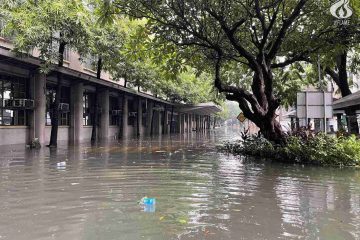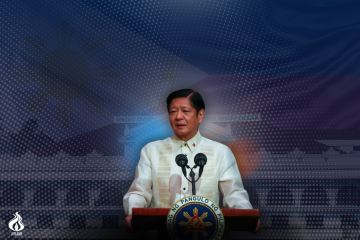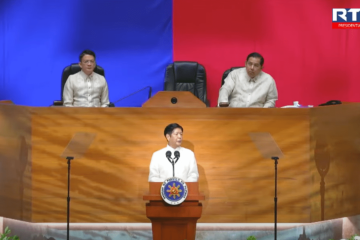
ASIAN STUDIES students of the University dominated the academic simulation UST Model ASEAN Meeting (UST MAM) 2024 after garnering five out of nine awards in different categories.
Five Asian studies students from different year levels were hailed as winners on Feb. 17 at the UST Tan Yan Kee Student Center.
The UST MAM, the first to be held onsite since the pandemic, is an academic simulation of ASEAN meetings that follows its principles and mechanisms in conducting in-depth research and analysis for local and international policies.
Participants were designated to the ten ASEAN member states in three community pillars (economic, political-security and socio-cultural), where they were tasked to discuss topics in their field and propose solutions for the Southeast Asian region.

They were assigned as a head of government or a diplomatic representative and were required to construct a chairman’s statement, which includes the synthesis and recommendations of country representatives during the meetings.
Shaira Denisse Sindayen, a senior and a delegate of Brunei, bagged the best position paper award under the ASEAN Economic Community (AEC) for her output that took on the theme of “Bridging the Digital Divide: The ASEAN Economy as a Catalyst for Regional Transformation.”
First-year student Jose Carlo Pascual, a delegate of Malaysia, received the award for best position paper under the ASEAN Socio-Cultural Community (ASCC). Pascual’s position paper adopted the theme, “Green Job Propagation Towards a Sustainable Future.”
The best position paper award is conferred to delegates whose works are suitable to the given topic and are potentially applicable in ASEAN member countries.
Sabado and Barbaso were tasked to propose solutions for issues, which underwent four resolution reviews, in their community pillars.
Third-year student Gabriel Emmanuel Gabrillo, also the Asian Studies Society secretary and head of the ASEAN Political-Security Community (APSC), was named best chairperson.
Similar to the criteria for the best delegates, the award is given to the individual who showed “their capability to exude collaboration with their co-delegates, diplomacy and utilization of the ASEAN way.”
Other awards given to the ASEAN Member-States were the best in position paper for APSC, best delegate for APSC, best head of government speeches and best head of government.
The recognitions were secured by the delegates from other participating universities, namely, University of Baguio, Lyceum of the Philippines University – Manila, De La Salle University – Laguna Campus and Ateneo de Naga University.
Carrying the theme, “Forging a Sustainable ASEAN: Intensifying Intra-regional Cooperation towards Resiliency,” the academic simulation held its 10th installation from Feb. 15 to 17. It was endorsed by the ASEAN Foundation and the ASEAN Youth Organization.
The UST MAM has been a pioneer among Model ASEAN Meetings in the country since its establishment in 2015. F – with reports from Joss Gabriel Oliveros



